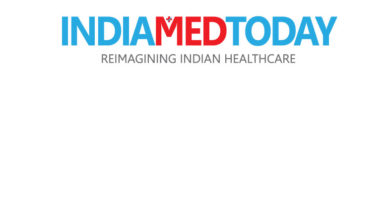Glenmark launches novel, globally-researched anti-diabetes drug Remogliflozin in India

Glenmark Pharmaceuticals Ltd. (Glenmark), a research-led global integrated pharmaceutical company, today announced the launch of its novel, patent protected and globally-researched sodium glucose co-transporter-2 (SGLT2) inhibitor Remogliflozin etabonate (Remogliflozin) in India. The drug is indicated in the treatment of type-2 diabetes mellitus in adults.
SGLT2 inhibitors are novel anti-diabetic drugs that help achieve glycemic control by acting on the SGLT2 receptors in the proximal tubule of the kidney, thereby preventing renal reabsorption of glucose and promoting excretion of glucose in the urine. SGLT2 drugs provide glycemic control, induce weight loss and reduce cardiovascular risks.
Glenmark is the first company in the world to launch the novel SGLT2 inhibitor Remogliflozin and India is the first country to get access to this innovative drug. Glenmark will commercialize Remogliflozin in India under the brand names “Remo” and “Remozen”.
Glenmark received regulatory approval for Remogliflozin etabonate 100 mg tablets, twice daily, after successfully completing Phase-3 clinical trials in which Remogliflozin demonstrated good efficacy and safety profile in a head-to-head comparison against Dapagliflozin.
Remogliflozin, the latest drug in SGLT2 inhibitors’ class to get regulatory approval in the world, has been studied in 26 clinical trials globally, covering around 2,500 people from various ethnicity.
-
Remogliflozin is an innovative, patent-protected sodium glucose co-transporter-2 (SGLT2) inhibitor indicated in treatment of type-2 diabetes mellitus in adults
-
SGLT2 inhibitors are cutting-edge, globally-accepted latest class of oral anti-diabetes drugs that provide glycemic control, induce weight loss and reduce cardiovascular risks
-
Glenmark is the first company in the world to launch Remogliflozin and India is the first country to get access to this innovative drug
-
Remogliflozin has been studied in 26 clinical trials globally, covering about 2,500 people from various ethnicities
Remogliflozin was discovered and developed by Japanese firm Kissei Pharmaceutical Co. Ltd. and later developed by GlaxoSmithKline plc and Glenmark collaborator BHV Pharma, a wholly owned subsidiary of Avolynt, Inc. which is based in North Carolina, USA. Glenmark secured certain rights to Remogliflozin through a licensing collaboration agreement with BHV Pharma, and conducted the Phase-3 clinical trial.
“Globally, SGLT2 inhibitors are emerging as a preferred treatment for management of type-2 diabetes and Glenmark is proud to introduce a novel molecule in this class, which is cutting-edge and researched extensively. Diabetes is a key area of focus for Glenmark and with the launch of Remogliflozin, the company aims to improve access to SGLT2 inhibitors by providing an effective, high quality and world-class treatment option to patients in India,” said Sujesh Vasudevan, President, India Formulations, Middle East and Africa at Glenmark Pharmaceuticals.
The American Diabetes Association and the European Association for the Study of Diabetes have recommended use of SGLT2 inhibitors as an alternative first line treatment to Metformin or as an adjunctive treatment in the management of type-2 diabetes mellitus. SGLT2 inhibitors are particularly recommended for use in patients that have certain established cardiovascular diseases.
India is estimated to have around 72 million adults living with diabetes, according to the International Diabetes Federation’s Diabetes Atlas 2017.
According to data from IQVIA, India’s diabetes market is estimated at Rs. 11,413 crore (approx. USD 1630mn) as of MAT March 2019. The market size of SGLT2 inhibitors is estimated at Rs. 574 crore (approx. USD 82mn) as of MAT March 2019.

